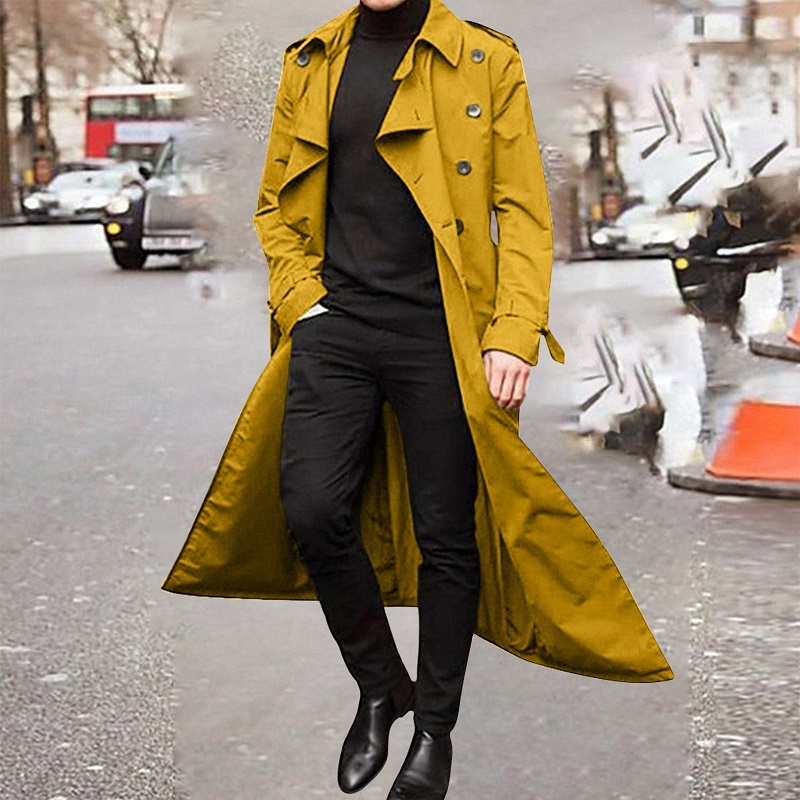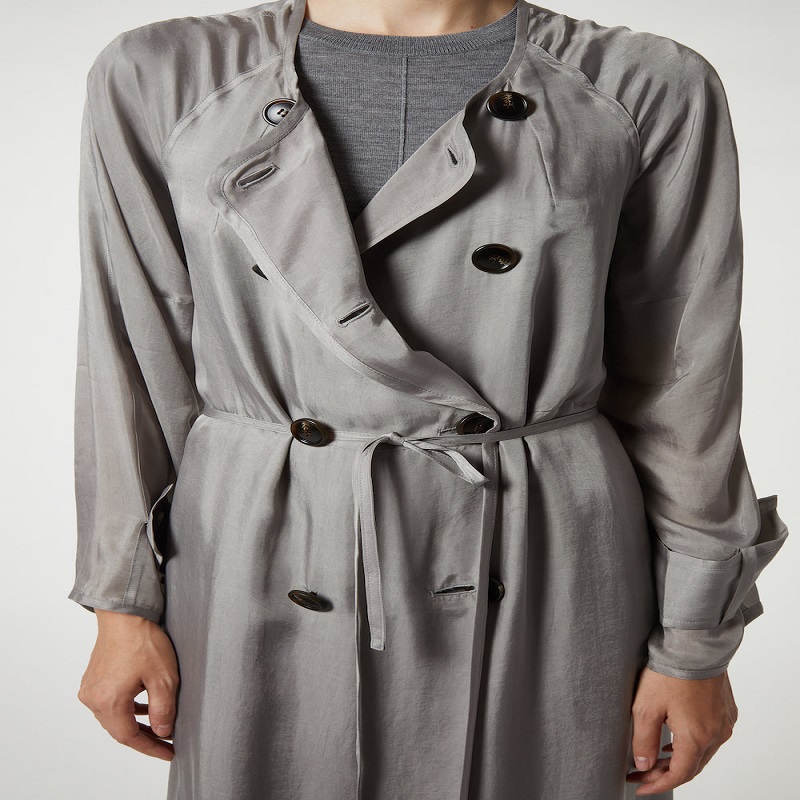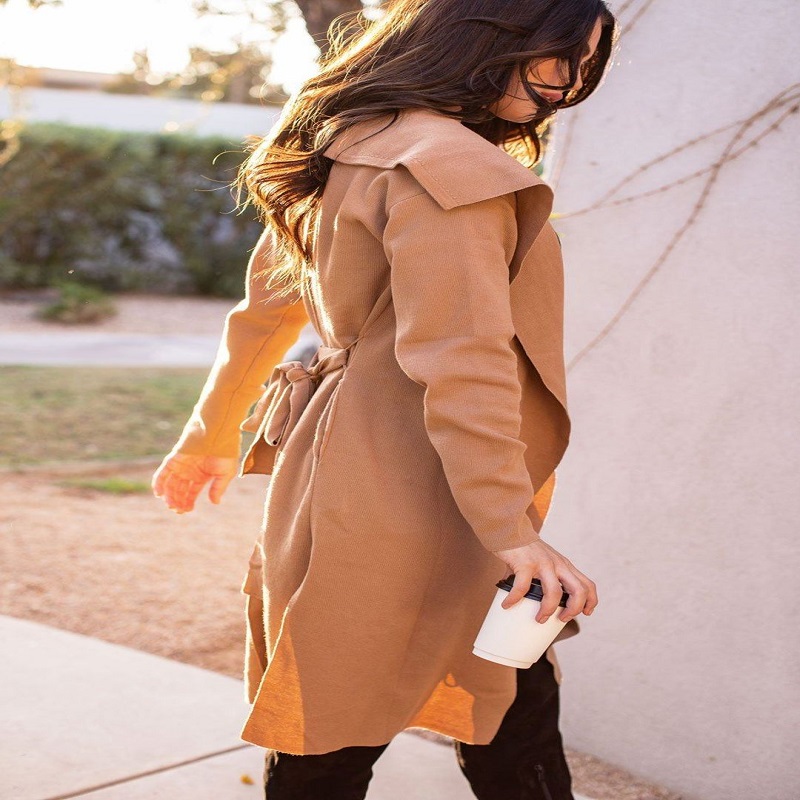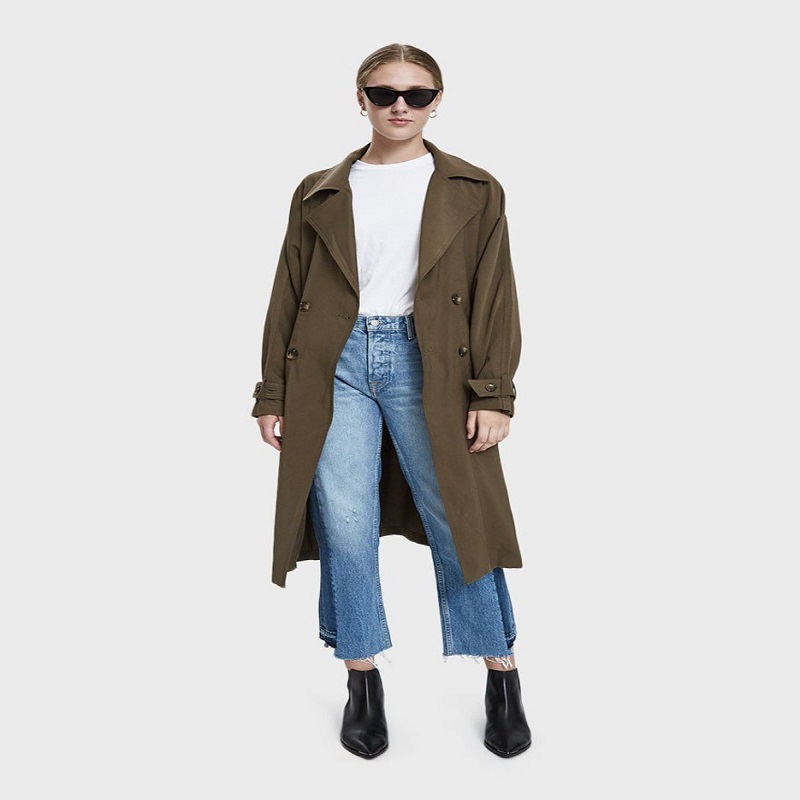Lightweight trench coat is a versatile and practical addition to any wardrobe. It can be dressed up or down, and is perfect for the unpredictable weather of spring and fall. When choosing a lightweight trench coat, there are a few key factors to consider, such as material, fit, and style. With so many options available, it can be overwhelming to make a decision. In this guide, we will discuss how to choose a lightweight trench coat that fits your style and needs.

Material
The material of a lightweight trench coat plays a crucial role in its functionality and durability. When choosing a trench coat, consider the climate and weather conditions in which you plan to wear it. Lightweight trench coats are often made from materials such as cotton, polyester, nylon, or a blend of these fabrics. Each material has its own advantages and disadvantages.
Cotton is a popular choice for lightweight trench coats due to its breathability and natural feel. It is also a good option for those looking for a more eco-friendly material. However, cotton is prone to wrinkling and may not be as water-resistant as synthetic materials.
Polyester and nylon are synthetic materials
Are commonly used in lightweight trench coats. They offer excellent water resistance and are more wrinkle-resistant than cotton. However, they may not be as breathable as cotton and can feel less natural against the skin.
When choosing a material for your lightweight trench coat, consider your personal preferences and the specific conditions in which you will wear it. If you live in a rainy climate, prioritize water resistance. If breathability is a priority, opt for a more natural material such as cotton.
Fit
The fit of a lightweight trench coat is important for both style and functionality. A properly fitting trench coat should allow for comfortable movement while still maintaining a sleek and tailored look. When trying on a trench coat, pay attention to the following fit considerations:

Shoulder width:
The shoulder seams should align with your natural shoulder line. If the shoulders are too wide or too narrow, the coat will look ill-fitting and feel uncomfortable.
Sleeve length:
The sleeves should reach to the base of the thumbs when the arms are at rest. This ensures that the sleeves are long enough to cover the wrists when reaching or moving.
Length:
The length of the long trench coat is a matter of personal preference, but it should generally fall to just above the knees. This provides ample coverage without feeling too restrictive.
Waist and hip fit:
The trench coat should gently taper in at the waist and accommodate the hips without feeling too tight. This creates a flattering silhouette without sacrificing comfort.
When trying on a lightweight trench coat, take the time to move around and test the fit in various positions. Make sure that the coat allows for easy movement and does not feel constricting.
Style
In addition to material and fit, the style of a lightweight trench coat is an important factor to consider. Trench coats come in a variety of styles, from classic double-breasted looks to more modern and minimalist designs. When choosing a style, consider the following factors:
Color:
Trench coats are available in a wide range of colors, from classic neutrals such as beige and navy to bold and vibrant options. Consider the colors that work best with your existing wardrobe and personal style.
Details:
Pay attention to the small details that can make a big impact on the overall look of the trench coat. Consider features such as buttons, epaulets, belts, and pocket styles.
Versatility:
Think about how the trench coat will fit into your everyday wardrobe. A versatile style can be dressed up or down and paired with a variety of outfits.
By carefully considering the material, fit, and style of a lightweight trench coat, you can choose a coat that fits your personal style and practical needs.

What are the materials and styles of lightweight trench coat?
A lightweight trench coat is a versatile and essential piece of clothing for any wardrobe. It provides protection from the elements without adding bulk, making it the perfect choice for transitional seasons. There are various materials and silhouettes to choose from when it comes to lightweight trench coats, each offering its own unique style and functionality.
Fabric Choices
Cotton
Cotton is a popular choice for lightweight trench coats due to its breathability and comfort. It is a natural, biodegradable material that is easy to care for and has a soft, breathable texture. Cotton trench coats are ideal for mild weather and can be easily layered for added warmth. They are also available in a wide range of colors and patterns, making them a versatile option for both casual and formal occasions.
Polyester
Polyester is a synthetic material that is commonly used in lightweight trench coats for its durability and water-resistant properties. It is a great choice for rainy or windy weather, as it provides protection from the elements without sacrificing style. Polyester trench coats are lightweight, making them easy to pack for travel or outdoor activities. They are also available in a variety of finishes, including matte and glossy, giving them a sleek and modern look.
Nylon
Nylon is another synthetic material that is commonly used in lightweight trench coats for its water and wind-resistant properties. It is a durable and lightweight fabric that is often used in outdoor and activewear. Nylon trench coats are ideal for outdoor activities such as hiking, camping, and exploring, as they provide protection from the elements while remaining breathable and comfortable. They are also available in a range of colors and patterns, making them a stylish choice for those who enjoy outdoor adventures.
Wool
Wool is a natural material that is commonly used in lightweight trench coats for its warmth, softness, and stylish appearance. It is a great choice for cooler weather, providing insulation and protection from the cold. Wool trench coats are available in various weights and textures, from light to heavy, making them a versatile option for different seasons. They are also available in classic colors such as camel, black, and navy, giving them a timeless and sophisticated look.
Silhouette Choices
Classic Fit
The classic fit silhouette is the most traditional style of lightweight trench coat, featuring a tailored and structured shape that flatters the body. It is characterized by a single-breasted design, a belted waist, and a double collar with a button-up front. Classic fit trench coats are versatile and timeless, making them a great investment piece for any wardrobe. They can be worn over both casual and formal attire, providing a polished and put-together look.
Slim Fit
The slim fit silhouette is a modern and streamlined style of lightweight trench coat, featuring a more fitted and tailored shape that accentuates the body. It is characterized by a narrow waist, slim sleeves, and a shorter length, giving it a contemporary and fashion-forward look. Slim fit trench coats are ideal for those who prefer a more tailored and sleek appearance, adding a touch of sophistication to any outfit.
A-Line Fit
The A-line fit silhouette is a relaxed and feminine style of lightweight trench coat, featuring a flared and flouncy shape that drapes loosely over the body. It is characterized by a wide collar, a loose belt, and a knee-length hem, giving it a flattering and flowy look. A-line fit trench coats are perfect for layering over dresses and skirts, adding a touch of elegance and movement to any ensemble.

Conclusion
A lightweight trench coat is a timeless and practical addition to any wardrobe. By considering factors such as material, fit, and style, you can choose a coat that suits your personal preferences and needs. Whether you opt for a classic cotton trench coat or a more modern nylon blend, a well-chosen lightweight trench coat will provide both style and functionality for years to come.
